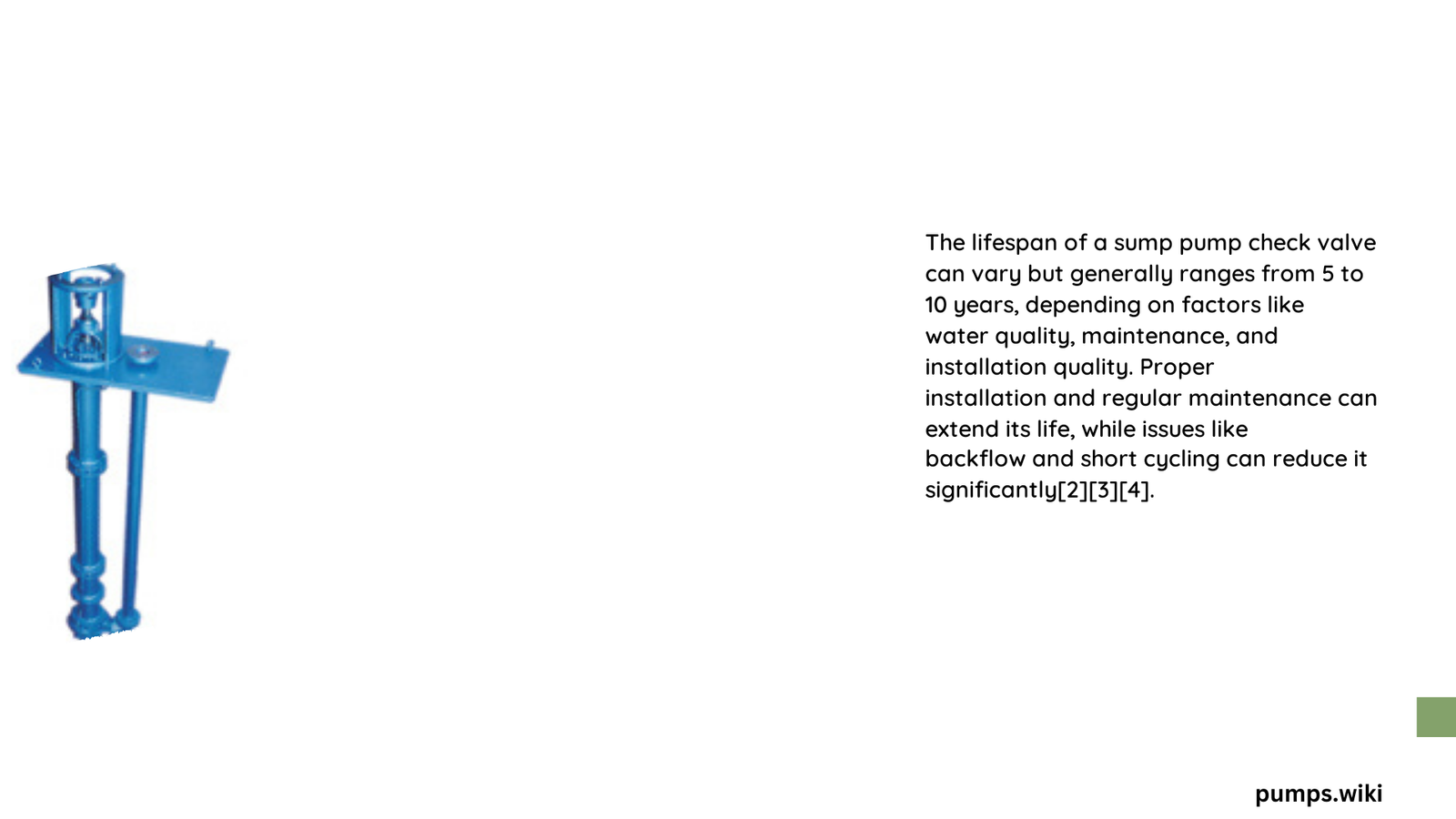Sump pump check valves are critical components that prevent backflow and protect basement flooding systems. Their lifespan varies dramatically based on material composition, water conditions, and maintenance practices. Homeowners can expect check valves to last between 2-10 years, with stainless steel and brass options offering superior durability compared to standard PVC models. Understanding the nuanced factors influencing check valve longevity can help prevent unexpected system failures and costly water damage.
What Determines Sump Pump Check Valve Lifespan?
Material Composition Impact
Different materials significantly influence the sump pump check valve lifespan:
| Material | Average Lifespan | Durability Rating |
|---|---|---|
| PVC | 2-7 years | Low |
| Brass | 5-9 years | Medium |
| Stainless Steel | 8-12 years | High |
Factors Affecting Durability
- Water Quality
- Aggressive mineral content
- pH levels
-
Sediment concentration
-
Installation Environment
- Temperature fluctuations
- Humidity levels
- Pressure variations
How Often Should Check Valves Be Replaced?
Professionals recommend evaluating check valves every 3-5 years, regardless of apparent condition. Warning signs include:
- Unusual gurgling sounds
- Water leakage around valve connections
- Visible corrosion or material degradation
- Inconsistent pump performance
What Maintenance Extends Sump Pump Check Valve Lifespan?

Proactive Inspection Techniques
Regular maintenance can dramatically extend your check valve’s operational life:
- Quarterly visual inspections
- Annual professional system evaluation
- Clean valve surfaces to prevent sediment buildup
- Lubricate moving components with silicone-based lubricants
Cost Considerations for Replacement
Check valve replacement costs vary based on material and complexity:
- PVC Valves: $10-$30
- Brass Valves: $25-$75
- Stainless Steel Valves: $50-$150
Installation Expenses
- DIY replacement: Minimal cost
- Professional installation: $100-$300
What Are Advanced Protection Strategies?
Upgrade Recommendations
- Choose corrosion-resistant materials
- Install water filtration systems
- Use pressure-balanced valve designs
- Consider professional-grade components
Performance Optimization Tips
- Maintain consistent water pressure
- Protect valves from direct sunlight
- Ensure proper drainage slope
- Use high-quality valve seals
What Technical Specifications Matter?
Valve Performance Metrics
- Pressure Rating: 150-400 PSI
- Temperature Tolerance: -10°C to 110°C
- Flow Coefficient (Cv): 5-25
- Material Hardness: Rockwell B85-95
Conclusion
Understanding sump pump check valve lifespan requires comprehensive knowledge of materials, environmental factors, and maintenance practices. Homeowners can maximize system reliability through informed selection and proactive care.
Recommended Actions
- Inspect valves annually
- Budget for potential replacements
- Choose high-quality materials
- Consult professional plumbers
Expert Tip
Invest in stainless steel or high-grade brass check valves for extended lifespan and superior performance.
